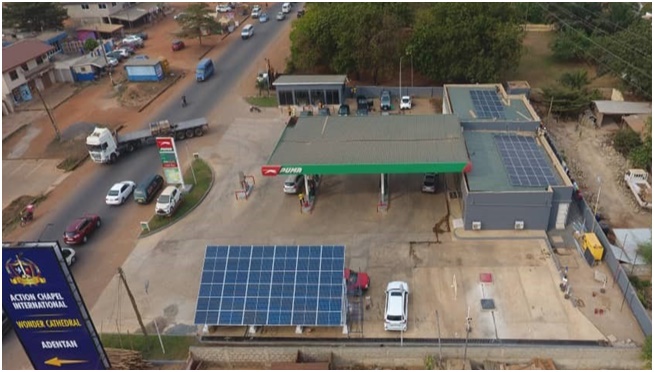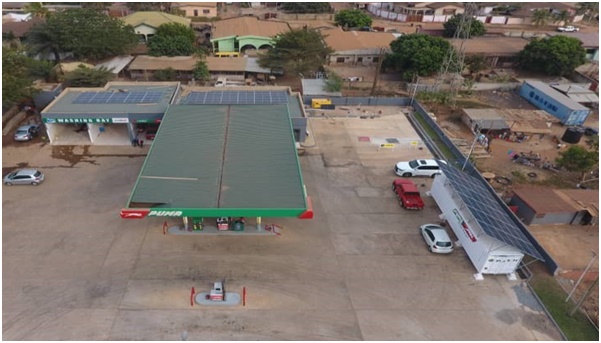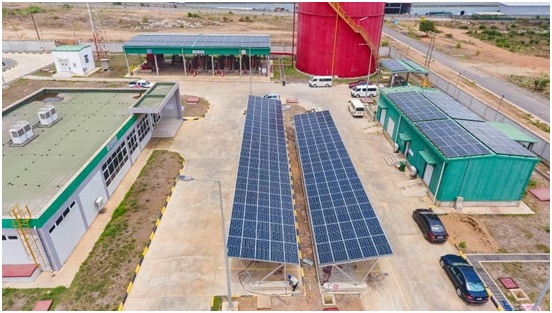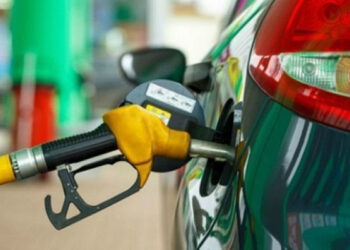Puma Energy’s newly established Future Energies business launches 11 solar projects at its retail stations and a further three at Puma Energy’s terminals in Ghana. The solar power generation at 11 of the 14 sites is supported by battery storage.
The combined solar and battery power systems in 14 service Stations and terminals in Ghana are part of Puma Energy’s Future Energies business wider business plan to roll renewable energy projects around the world.
Puma Energy hopes not only to reduce its own carbon footprint but also support its commercial customers in Ghana and around the world as they seek to decarbonise and reduce their carbon impact.

These projects benefit from Ghana’s high solar energy potential and have a total capacity of 422kWp and associated battery storage of 224 kWh and can provide up to 100% of a sites’ energy.
Henry Osei, Puma Energy GM in Ghana said, “We are proud to install the solar systems in our sites and depots as it meets our purpose of energizing communities and reinforces our commitment to clean energy solutions and meeting our ESG goals. Africa, and Ghana, in particular, has a great potential for solar power, and we are establishing the first steps to transforming this potential into a more sustainable and energy-efficient system to power our sites and depots. Ghana is pleased to be the first country to show the first footprints of our energy transition drive in Africa”.
Mitchell Board, Global Head, Future Energies said: “By combining our expertise and local knowledge with the right sites and access to finance, we hope to accelerate the renewable energy transition in Ghana not just for Puma but for our customers too.”

Puma Energy’s Future Energies business unit focuses on developing lower-carbon, modular, distributed renewable energy systems, including energy management and storage, particularly in emerging markets across the Americas, Africa and Asia-Pacific where so far the renewable energy transition has been slower and has huge potential for growth. Puma Energy aims to deploy solar and/or battery storage in at least 75% of company-owned retail sites, depots and terminals in the world by 2023.

Future Energies is also scaling the rollout of solar hybrid systems to other nations with high solar energy potential including Puerto Rico, Nicaragua, Honduras and Papua New Guinea.

Source:Puma Energy














